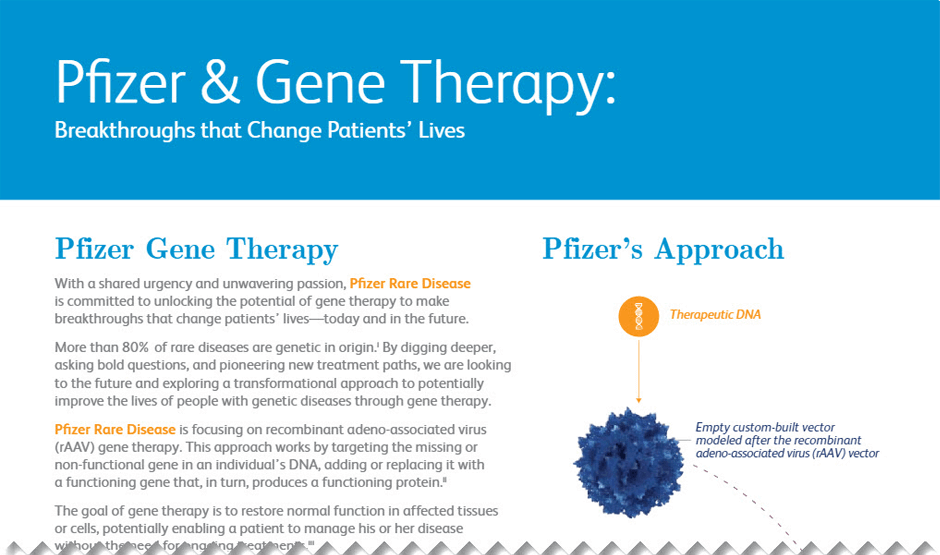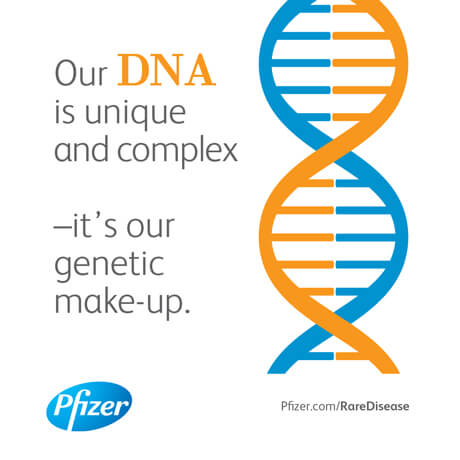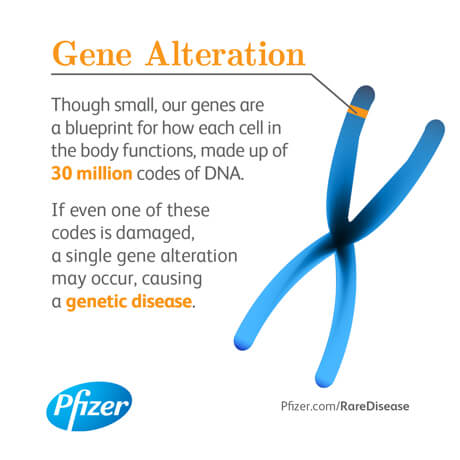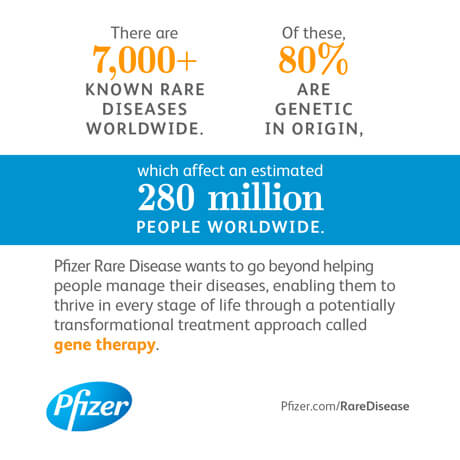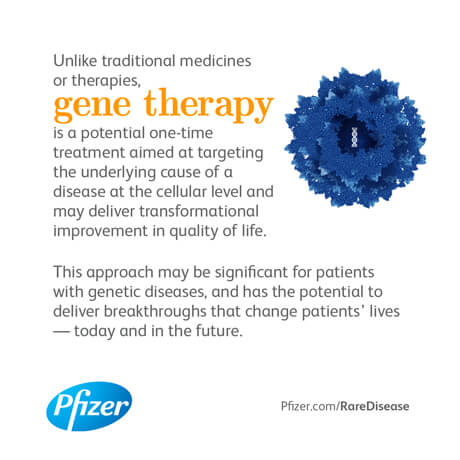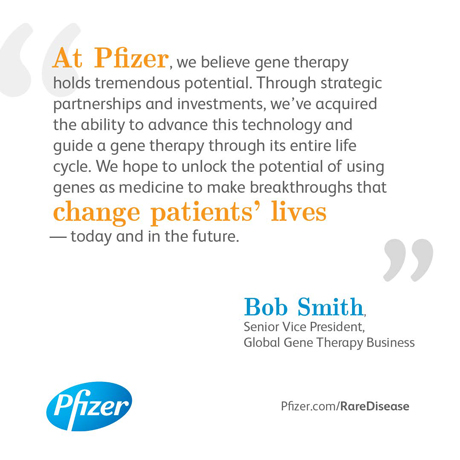Gene Therapy’s Promise: Future Uses, Applications & Prospects
About 320 million people worldwide live with a rare genetic disease.1 By unlocking the promise of gene therapy for millions worldwide, Pfizer is pioneering breakthroughs that will change patients’ lives.
Gene therapy could enable patients to live without the need for ongoing treatments or the burden of daily disease management.2 We’re going beyond helping people manage their diseases. We want them to thrive in every stage of life.
GENE THERAPY: FREQUENTLY ASKED QUESTIONS
- What is a Genetic Disease?
A genetic disease is caused by an alteration in an individual’s DNA, oftentimes inherited or, in rare cases, occurring spontaneously.3 Genes play an essential role in determining the function of each cell in the body, made up of 30 million codes of DNA.4,5 If even one of these codes is damaged, a gene alteration may occur causing a genetic disease,3 some of which can be debilitating and life-threatening.4
- What is Gene Therapy?
Gene therapy is a new generation of medicine where a functioning gene is delivered to a targeted tissue in the body to produce a missing or nonfunctioning protein. By using genes as medicine, the underlying cause of a disease can be targeted at the cellular level, potentially with just one treatment.2,6,7
- How do you know if you may be eligible for gene therapy?
Eligibility for gene therapy treatments will be determined by a number of criteria, including a blood test to check for antibodies to the custom vector. Patients can discuss the test criteria and results with their physicians and determine how to proceed on an individual basis.8,9 Factors that may make someone ineligible to receive gene therapy treatment include patients with preexisting antibodies that would neutralize the specific gene therapy treatment, patients who have previously received gene therapy and developed these antibodies, and for certain diseases, the age of the patient at the time of treatment.
- How long does gene therapy last?
Clinical trials are currently underway to explore the many unknowns, including how long a particular gene therapy may last.8 That said, evidence to date indicates gene therapy has the potential to increase or restore function in affected tissues or cells over a long period of time and may enable a patient to manage his or her disease without the need for ongoing treatments.
References:
1. Global Genes. RARE Facts. https://globalgenes.org/rare-facts/. Accessed February 10, 2020.
2. NIH Genetics Home Reference (GHR). What is Gene Therapy? https://ghr.nlm.nih.gov/primer/therapy/genetherapy. Accessed February 10, 2020.
3. NIH National Human Genome Research Institute. Genetic Disorders. https://www.genome.gov/For-Patients-and-Families/Genetic-Disorders. Accessed February 10, 2020.
4. NIH Genetics Home Reference (GHR). What is a Gene? https://ghr.nlm.nih.gov/primer/basics/gene. Accessed February 10, 2020.
5. Forbes. How Many Possible Combinations of DNA Are There? https://www.forbes.com/sites/quora/2017/01/20/how-many-possible-combinations-of-dna-are-there/. Accessed February 10, 2020.
6. NIH Genetics Home Reference. How does Gene Therapy Work? https://ghr.nlm.nih.gov/primer/therapy/procedures. Accessed February 10, 2020.
7. Data on file. Pfizer Inc, New York, NY.
8. Mingozzi F, High KA. Immune responses to AAV vectors: overcoming barriers to successful gene therapy. Blood. 2013;122(1):23-36.
9. Payne J. Antibody and antigen tests. Patient Platform Limited Web site. https://patient.info/health/antibody-and-antigen-tests. Accessed February 10, 2020.
